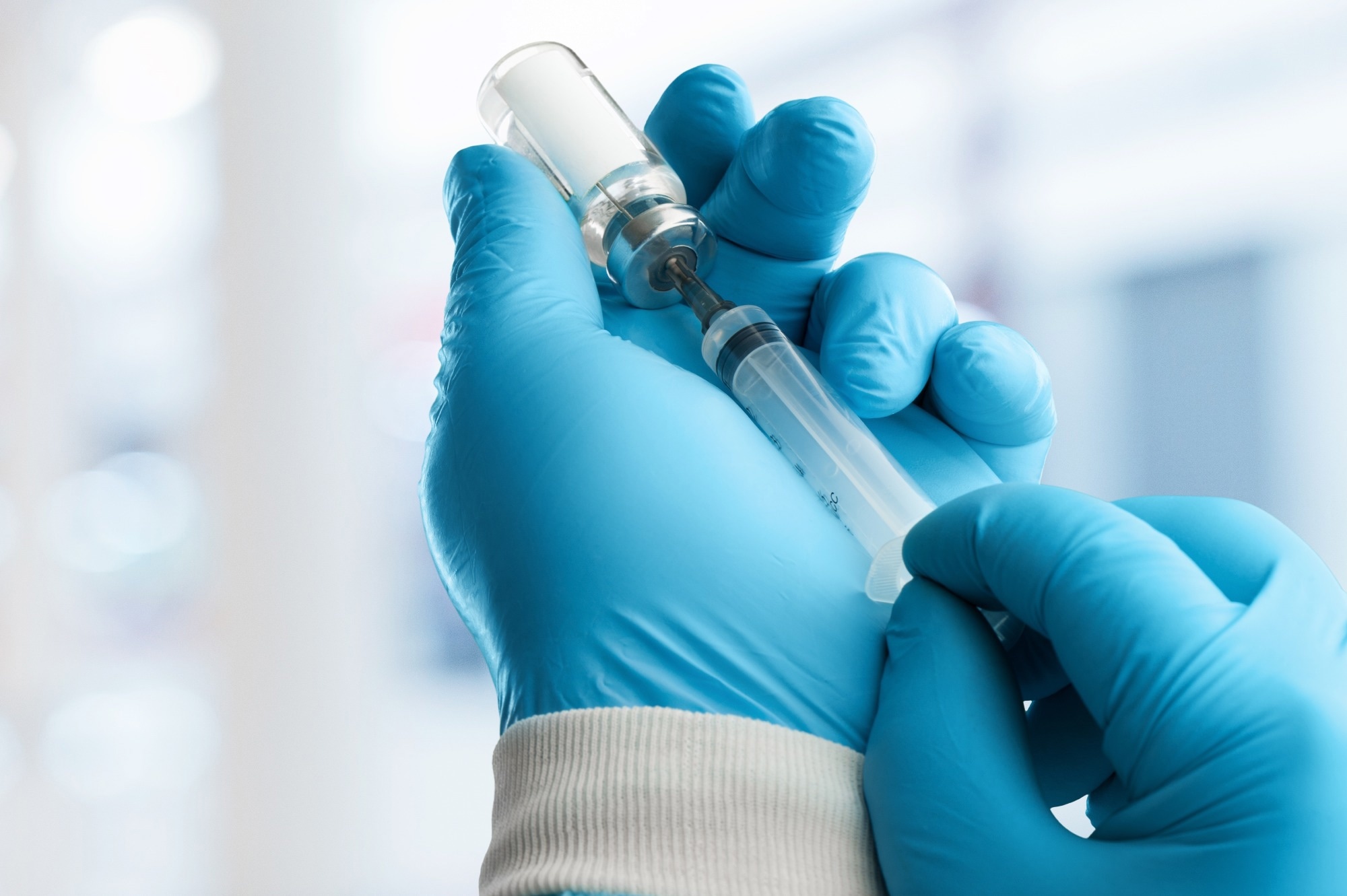A recent study posted to the medRxiv* preprint server reviewed early-phase dose-finding trials to examine the study design, safety, and early antibody response data on approved coronavirus disease 2019 (COVID-19) vaccines and gain insights on design improvements for future candidate COVID-19 vaccine clinical trials.
 Review: Dose of approved COVID-19 vaccines is based on weak evidence: a review of early-phase, dose-finding trials. Image Credit: Billion Photos / Shutterstock
Review: Dose of approved COVID-19 vaccines is based on weak evidence: a review of early-phase, dose-finding trials. Image Credit: Billion Photos / Shutterstock

 *Important notice: medRxiv publishes preliminary scientific reports that are not peer-reviewed and, therefore, should not be regarded as conclusive, guide clinical practice/health-related behavior, or treated as established information.
*Important notice: medRxiv publishes preliminary scientific reports that are not peer-reviewed and, therefore, should not be regarded as conclusive, guide clinical practice/health-related behavior, or treated as established information.
Background
By July 2022 around 66.9% of the global population had already received a dose of COVID-19 due to the worldwide vaccination push. However, studies have revealed significant inequity in the administered dosage between low- and high-income countries (27.6 and 202.9, respectively).
While reduced dosage or “fractional” dosing has been explored to prevent serious adverse reactions, decrease costs, and stretch the existing vaccine supply, most studies have focused on fractional dosing for the booster and not the preliminary rounds of vaccinations.
About the study
In the present study, the researchers from the University College London examined the study design, safety, and immune response of several early-phase dose-finding trials for severe acute respiratory syndrome coronavirus 2 (SARS-CoV-2) vaccines that were granted emergency use listing (EUL) status by the World Health Organization (WHO) by July 2022.
The 11 approved vaccines considered in this review consisted of three messenger ribonucleic acid (RNA) vaccines, three inactivated whole virus vaccines, three viral vector vaccines, and one recombinant protein vaccine. Additionally, the authors included the CVnCoV vaccine, which missed the prespecified statistical criteria for successful protection against the disease by a narrow margin.
Results
The results showed that higher doses elicited more frequent and severe adverse reactions, though none were of clinically intolerable levels. The immune response to higher doses was better, but the difference in neutralizing antibody titers and binding antibody concentrations between the highest and second-highest dosages was only 1.6-fold.
The number of evaluated doses varied extensively across trials. For example, inactivated viral vaccine trials evaluated either two or three doses with a narrow dosage range and observed a two-fold difference between adjacent doses. On the other hand, trials of mRNA vaccines included a wider dosage range and longer gaps between subsequent doses.
The number of subjects was not comparable either across trials. The trials for mRNA vaccines mRNA-1273 and BNT162b2 consisted of 15 and 24 subjects per dose, respectively, but those for inactivated whole virus vaccine BBV152 included 190 subjects per dose.
The authors observed that the methodologies for analyzing immune response varied across the trials, with most trials quantifying the level of antibodies binding to the SARS-CoV-2 spike protein. The trials for BBIBPCorV, an inactivated whole virus vaccine, considered only neutralizing antibody levels, while those for another inactivated whole virus vaccine (CoronaVac) and a viral vector vaccine (Convidecia) measured the levels of anti-receptor binding domain (RBD) antibodies.
The inactivated virus vaccine trials observed no dose-associated reactogenicity, but for all the other types of vaccines, the severity and frequency of adverse reactions increased with an increase in dosage. The mRNA vaccine BNT162b2 was the only vaccine to elicit clinically unacceptable levels of reactogenicity at a 100-µg dose, which was discontinued.
All vaccine trials except those for CNVCoV reported seroconversion rates close to or equal to 100% after the final vaccine dose. Though most trials reported a 1.6-fold or lower difference in immune response between the highest and second highest dosage values, an mRNA efficacy trial that estimated hazard risk ratios according to levels of anti-spike protein immunoglobulin G (IgG) and neutralization titer for 50% protection (NT50) reported an 8.7% and 18.9% increase in disease risk associated with a 1.6-fold decrease in IgG and NT50 levels, respectively. This highlights the need to interpret the results of clinical trials using comparable parameters.
Conclusions
To conclude, the significant findings of the review indicated an increase in immune response and adverse reactions with increasing dosage. However, the number of doses and subjects and the analysis methodologies differed considerably across different trials. In addition, the non-uniformity in the study design of early-phase dose-finding trials of various types of COVID-19 vaccines makes comparing results difficult.
The authors believe that the shortage of robust clinical trials to assess the efficacy and safety during the primary vaccine trials resulted in unnecessarily high primary vaccine doses. They advocate the expansion of reduced dose trials to incorporate primary injections along with booster doses. The study highlights the importance of well-designed and comparable primary vaccine trials in determining the optimal dosage for improved immune response with decreased adverse reactions.

 *Important notice: medRxiv publishes preliminary scientific reports that are not peer-reviewed and, therefore, should not be regarded as conclusive, guide clinical practice/health-related behavior, or treated as established information.
*Important notice: medRxiv publishes preliminary scientific reports that are not peer-reviewed and, therefore, should not be regarded as conclusive, guide clinical practice/health-related behavior, or treated as established information.